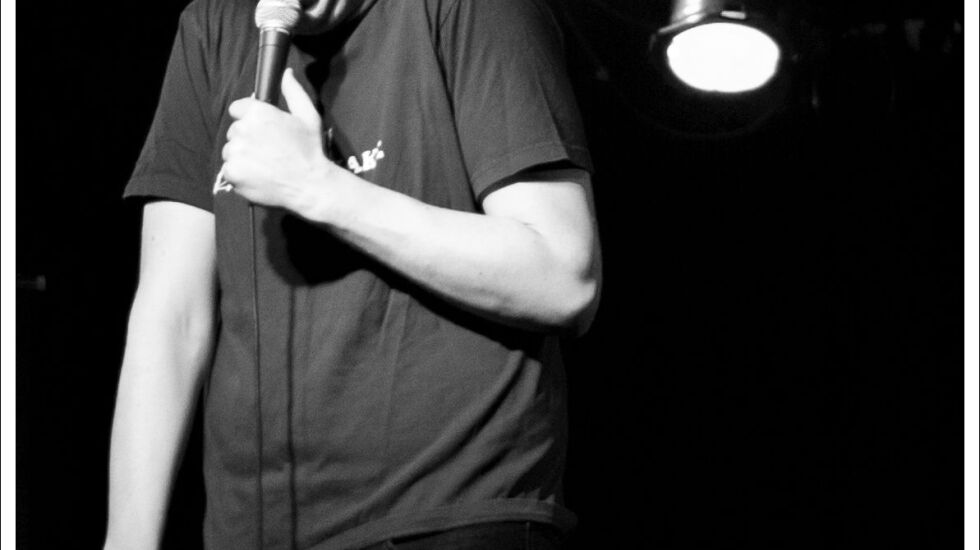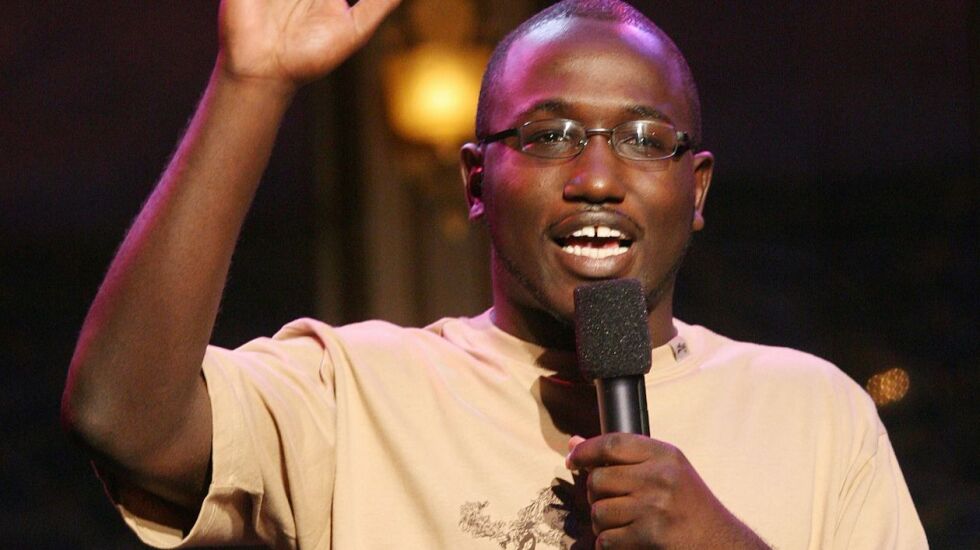In the new book “The Perfect Amount of Wrong,” stand-up comic and producer Mike Bridenstine chronicles how he watched a handful of comedian-run Chicago shows in the late ’90s and early ’00s, mostly in the back rooms of bars or unused annex spaces at restaurants, produce a wave of alternative talent still working at the top of their game.
The list of talent from that time is astounding: Kumail Nanjiani (“Eternals,” “The Big Sick”), Pete Holmes (“Crashing,” “You Made It Weird”), Hannibal Buress (“The Eric Andre Show,” “Broad City”), Cameron Esposito (“A Million Little Things”), Dwayne Kennedy (“United Shades of America”), TJ Miller (“Silicon Valley”), Kyle Kinane (“Paradise PD”), Matt Braunger (“Upload”), Brooke van Poppelen (“Girl Code”) and countless others.
“The Perfect Amount of Wrong,” out Sept. 25 from The History Press, maps out how the landscape led to such a wide range of acts. “I wanted to write something that was authentic to the scene and was coming from someone in the scene,” Bridenstine says. He will be in town to talk about the book Sept. 29 at Volumes Bookcafe in Wicker Park and Sept. 30 at The Lincoln Lodge in Bucktown — part of its Future of Comedy Festival.
When Bridenstine moved to Chicago in 2003, the scene was centered around Monday nights at The Lyons Den, a legendary open mic held at what is now The Globe Pub in North Center. Thanks to generous word-of-mouth and consistent audiences of non-comedians — every stand-up’s white whale — the list of performers often stretched past 50 and the show ran late into the night.

The Lyons Den, and other local outlets at the time, imposed zero guidelines on material, which encouraged adventurous stand-ups known for, let’s say, daring acts. There was Bill O’Donnell, who would routinely induce vomiting onstage, and Chet Lactacious (a pseudonym), whose signature bit ended with the comic in a full Ku Klux Klan outfit.
The book begins earlier, after more than a dozen stand-up clubs in Chicago closed their doors in the late ’90s. Zanies, a club in Old Town down the street from Second City, survived the bust to become the only game in town, and Bridenstine says few locals had luck getting booked.
The lack of opportunities at Zanies started a groundswell of ambition at the local level. “[In Chicago comedy], being told no, instead of being an end, tends to be a beginning,” Bridenstine says.
This beginning was located at what is now Replay in Lincoln Park, where Cayne Collier launched The Elevated weekly showcase. Then, when U.K. transplant Mark Geary was unable to get booked, he started an open mic at the Red Lion Pub in Lincoln Park that later became the Lincoln Lodge showcase in the spare room of a North Center diner. Performers told “no” by the Lodge founded Chicago Underground Comedy at the Beat Kitchen, Comedians You Should Know at Timothy O’Toole’s Pub in Streeterville and Edge Comedy shows across the city, hosted by local comic and booker Dave Odd.

The set-up for these shows was less than ideal. Despite Geary’s efforts to construct a stage and ambience, The Lincoln Lodge cash register was cacophonous and the servers chatted at full volume. At The Elevated, comics had to contend with the roaring of Red and Brown Line trains zipping by just outside the bar. Bridenstine recalls an Edge Comedy show at a coffee shop in which the stage was a wobbly table.
“One time somebody said to me, ‘Why are Chicago comics louder on the mic?’ Because we were shouting over a bar for years,’” says Bridenstine, who performs stand-up and serves as the general manager at the Lyric Hyperion Theater in Los Angeles. “A Chicago comic is someone who is constantly dealing with imperfect situations in a way that, somehow, the imperfections make everything you’re seeing better. … We turned chaos into charm.”
Bridenstine identifies Pat Brice’s death in 2007 as the moment his iteration of the comedy scene ended. Brice, a Bridgeport native, was one of Chicago’s funniest and most respected comedic voices when heart failure took his life at the age of 29. Bridenstine notes that the tragedy forced other comics to grapple with fleeting careers and take risks they’d been putting off; Brice never got to do it, so they had better get going.
Most of the names in “The Perfect Amount” have left the city, but Chicago remains an incubator for naturally talented stand-ups refining their voices — particularly because some of the ramshackle showcases have moved to established spaces, as The Lincoln Lodge did a few years ago. “You could go to the Lincoln Lodge tonight and be like, ‘I’m gonna follow the career of Skyler Higley, Ali Drapos or Chris Higgins,’ and feel like you just saw the future of comedy.”







